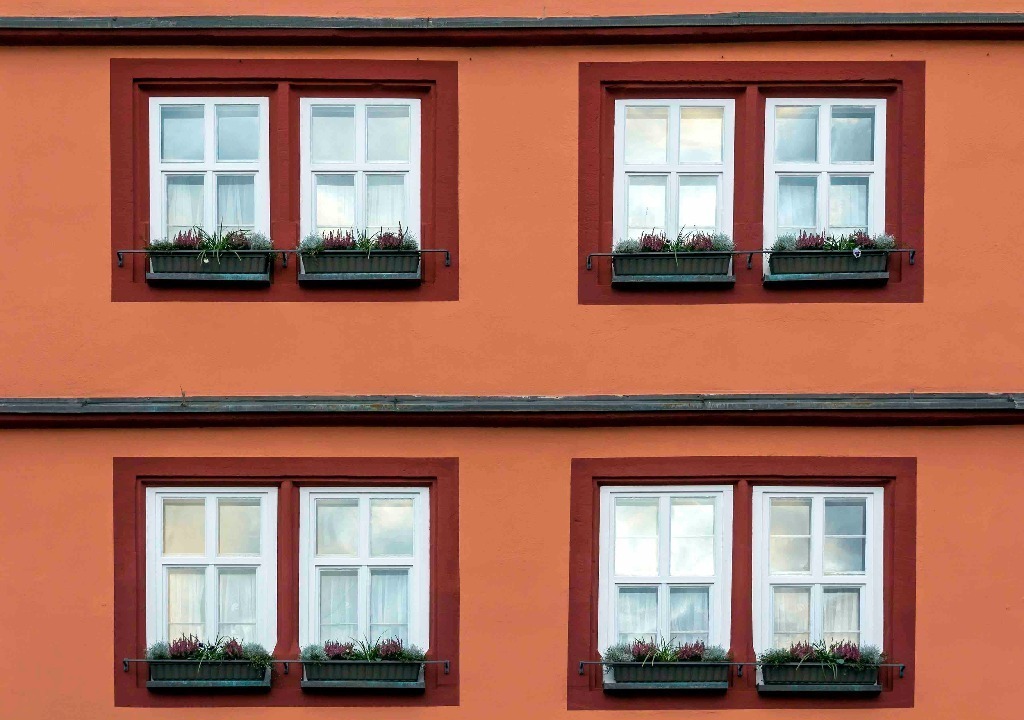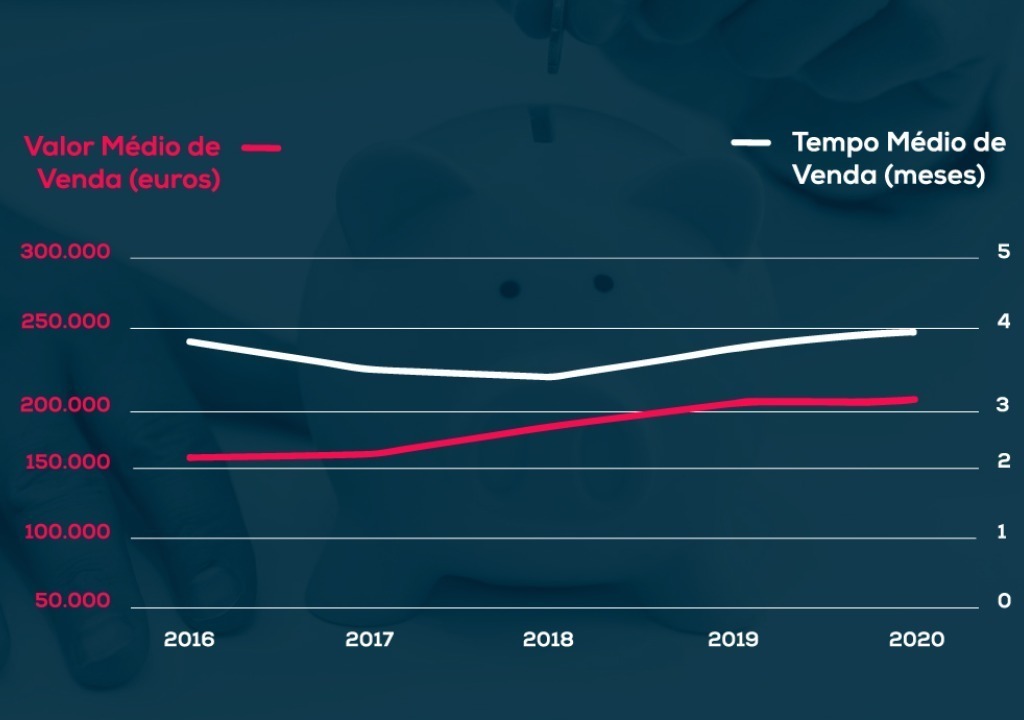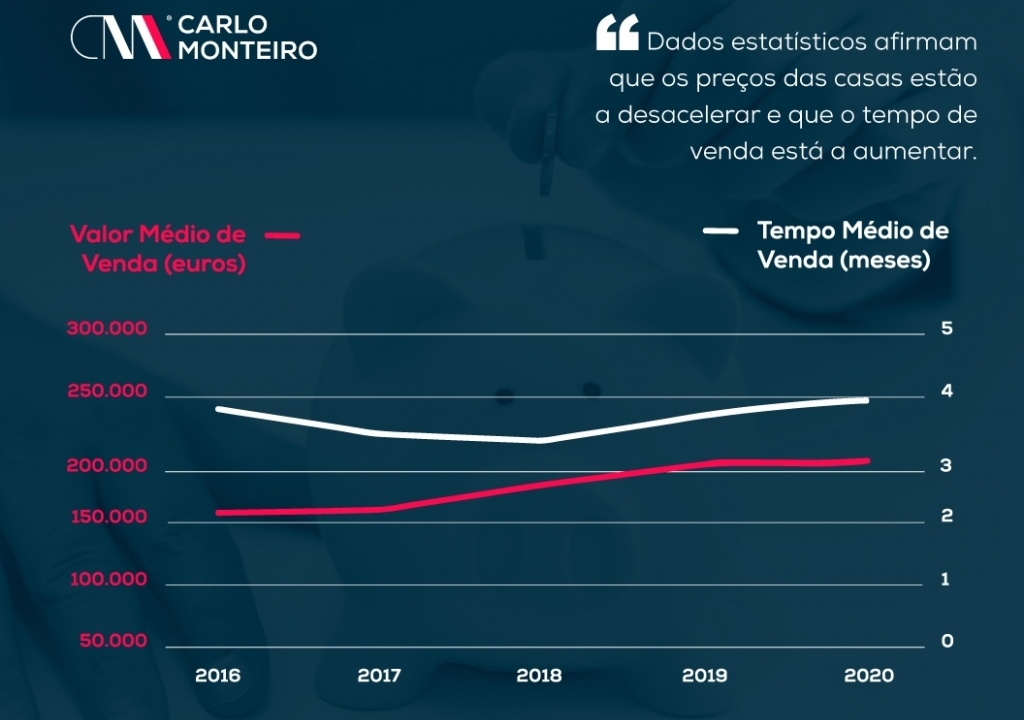House prices in Portugal are slowing down.
When history repeats itself: more houses were sold (and prices soared) in 2018. This was the title of the 2018 annual summary on the theme of “house prices”. What changed last year in 2019? In short, buying home remains (very) expensive, although prices have been slowing down lately, ie they are rising, but less. At the close of the year, 45,830 homes were sold in the third quarter of 2019, more than in the previous two quarters, but 0.2% less than in the same period last year. The prices? rose 10.3% in one year.
Let's do it by steps. We start with data from the idealist price index. That confirms, moreover, that the home buying and selling market is still raging in the country, with property prices maintaining their upward trend, albeit at a slower pace. In the third quarter of 2019, houses were 2.5% more expensive compared to the previous quarter, standing at 1,981 euros per square meter (m2). This is a 15% increase year on year. It is therefore concluded that the price increase is easing, as in the first two quarters of the year there were chain increases of 3.3% and 4.5% respectively.
Data from the National Institute of Statistics (INE) go in the same direction. At the end of January, for example, we realized that buying a house in Lisbon cost as much as 4,532 euros per m2, with the data for the third quarter of 2018. According to the same data, Pampilhosa da Serra was the most Cheap to buy home. To help you better understand this phenomenon, we showed graphically how prices in Portugal, Lisbon and Porto had evolved.
Now see.
Later, in May, INE “returned to the load” with new values: in Lisbon and Porto, for example, house price increases were 23% higher year-on-year, with the price of m2 in the capital increase of 23.5%, exceeding 3,000 euros per m2. These were, at the time, the most expensive and cheapest to buy a home.
Still on this topic we wrote, in the middle of the year, that house prices had risen 9.2% in a year, but that the pace was slowing down and that Amadora, Porto and Lisbon were the “most inflated” cities.

Warnings, Alerts, and Open Future
With the sharp rise in house prices in recent years, the scenario of a possible overheating of the market has gained strength. And it was various entities and / or organisms that "put a finger on the wound". But are there warning signs, which is how you say, is there a real estate bubble in Portugal?
Earlier this year, Eurostat confirmed that house prices in the country rose by almost twice the average of the Eurozone and the European Union. Already a report from the Observatory on Crisis and Alternatives warned that housing prices are rising “above wage developments”, which is a worrying indicator.
For Luis Lima, president of the Association of Real Estate Professionals and Companies of Portugal (APEMIP), one of the most active voices in the sector, the phenomenon of price increase will also occur in the outskirts of cities. Hence it was important, he later told the idealist / news, to adjust prices and to bet on new construction.
The International Monetary Fund (IMF) and the European Commission (EC) have also addressed rising house prices. The first, not to mention countries, considered that the rapid rise in prices raises fears about a possible fall over the next three years (by 2023) while the second warned of a slowdown in prices, but at a slow pace. Equally concerned was Amnesty International, which alerted the UN to the problems of access to housing in the country. More recently, ending the year, the financial rating agency Moody's said it predicted that house prices will continue to rise in Portugal, to rise by 4% in 2020. Is it?
Regarding the number of transactions, fell 6.6% in the second half of the year compared to the homologous period, which happened for the first time since 2013. Between April and June 2019 42,590 properties were transacted, INE concluded. Signs that fewer properties could be being sold came earlier through evidence that the average selling time was increasing, meaning that it took longer to change ownership.
Certainly, 178,691 properties were sold in 2018, 25,339 (16.6%) more than in 2017. There are 490 houses a day, 70 more houses than in 2017. And transactions totaled 24.1 billion euros, 24 more , 4% compared to the previous year (equivalent to 12% of GDP).
News Source: www.idealista.pt
21 from January from 2020
Buying a home is still (very) expensive but prices are slowing down. Is it really so?
* Call to national mobile network.








